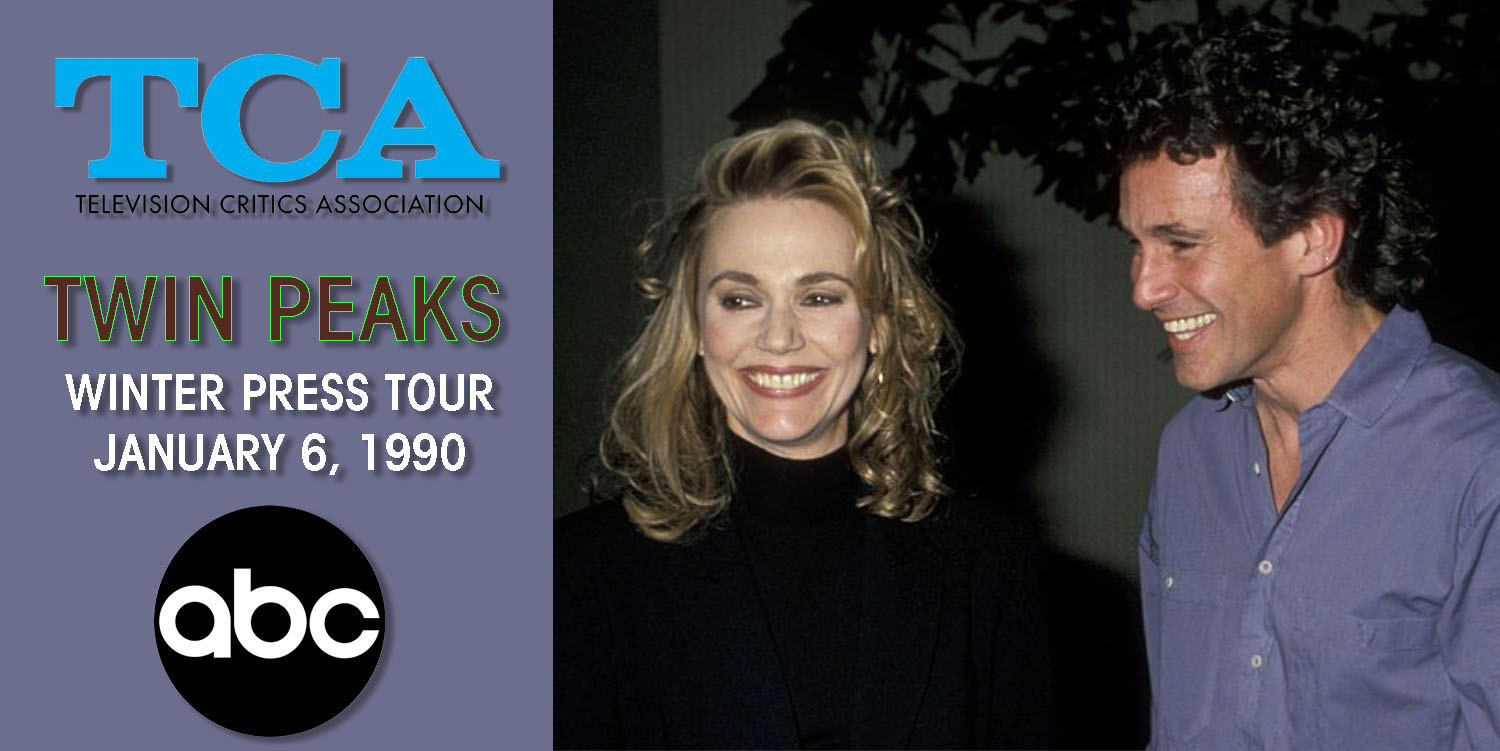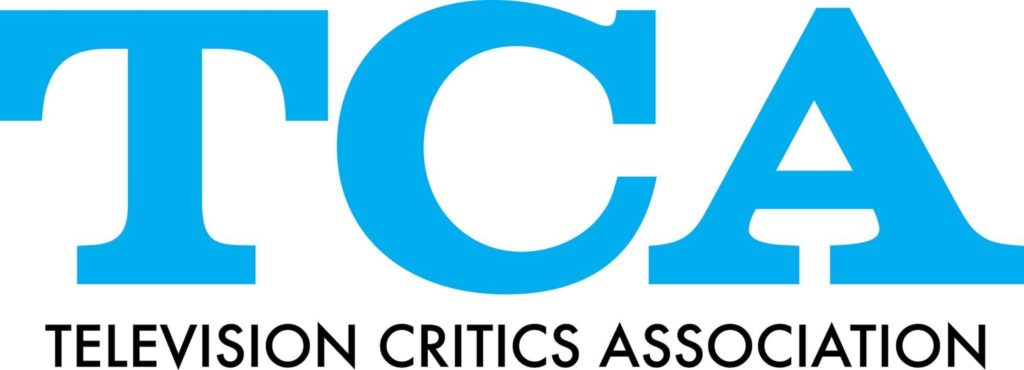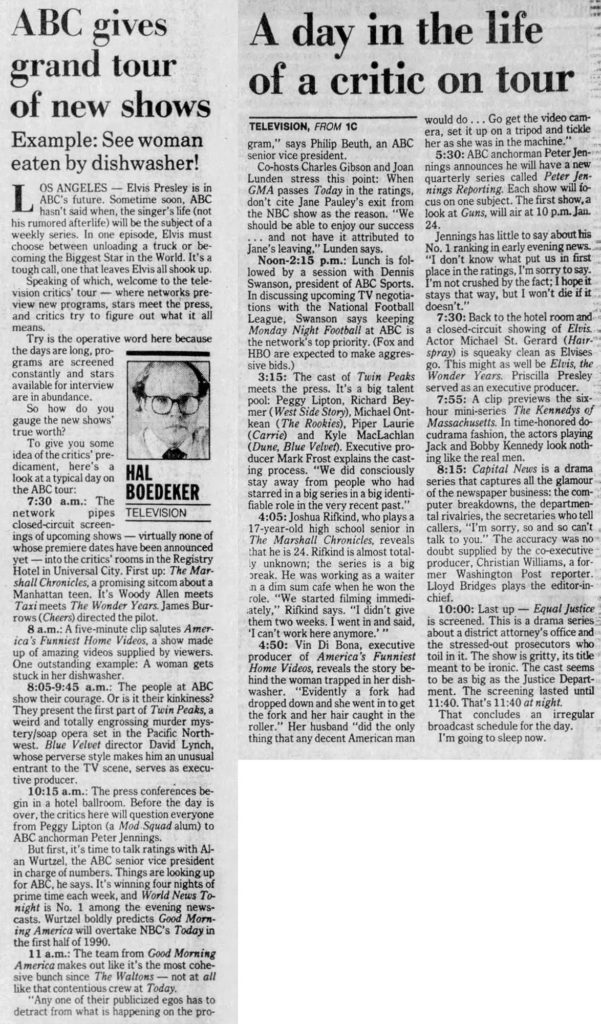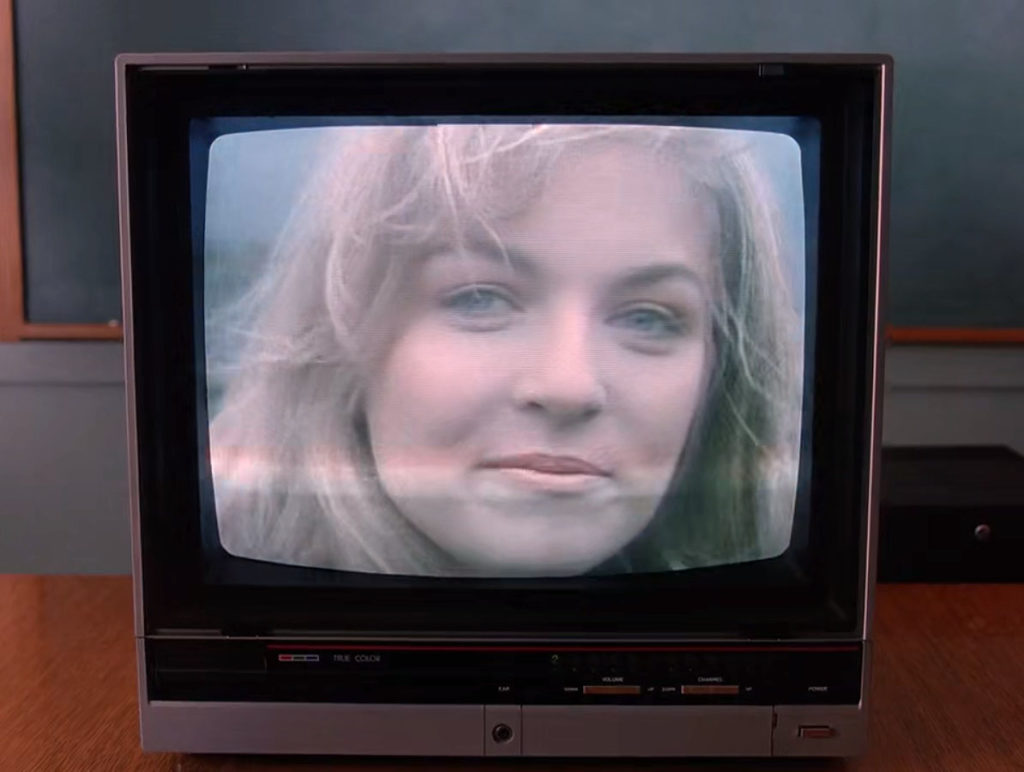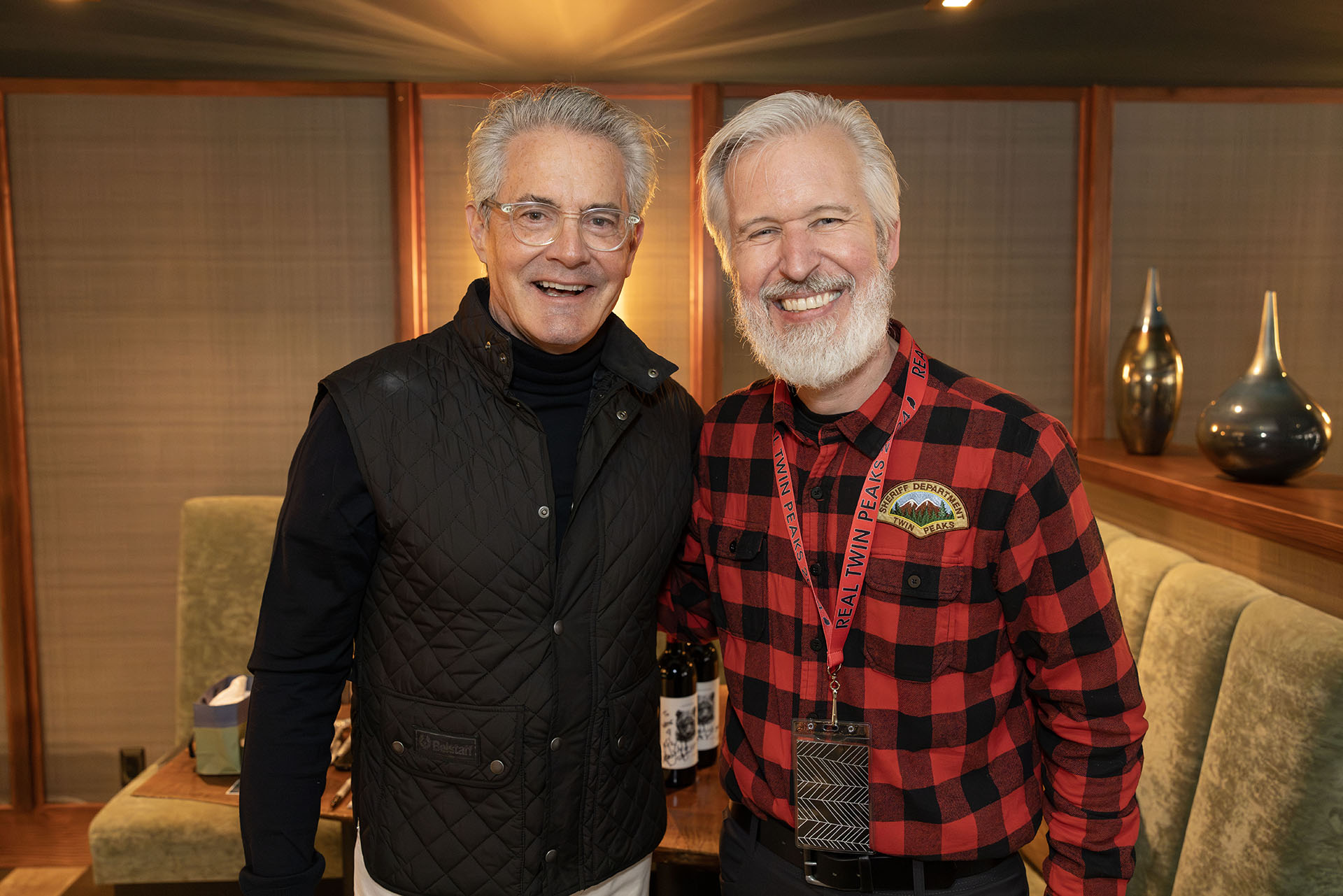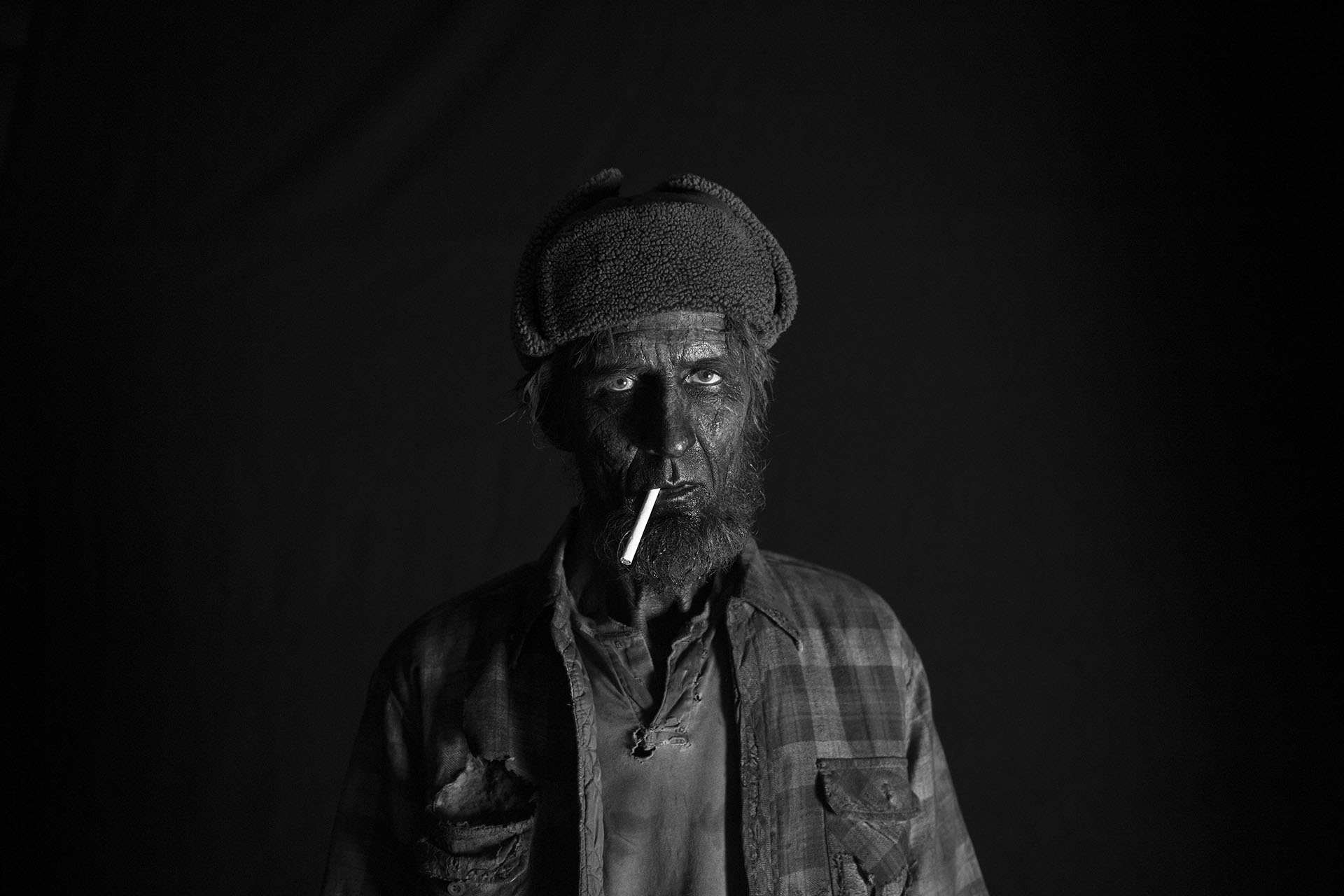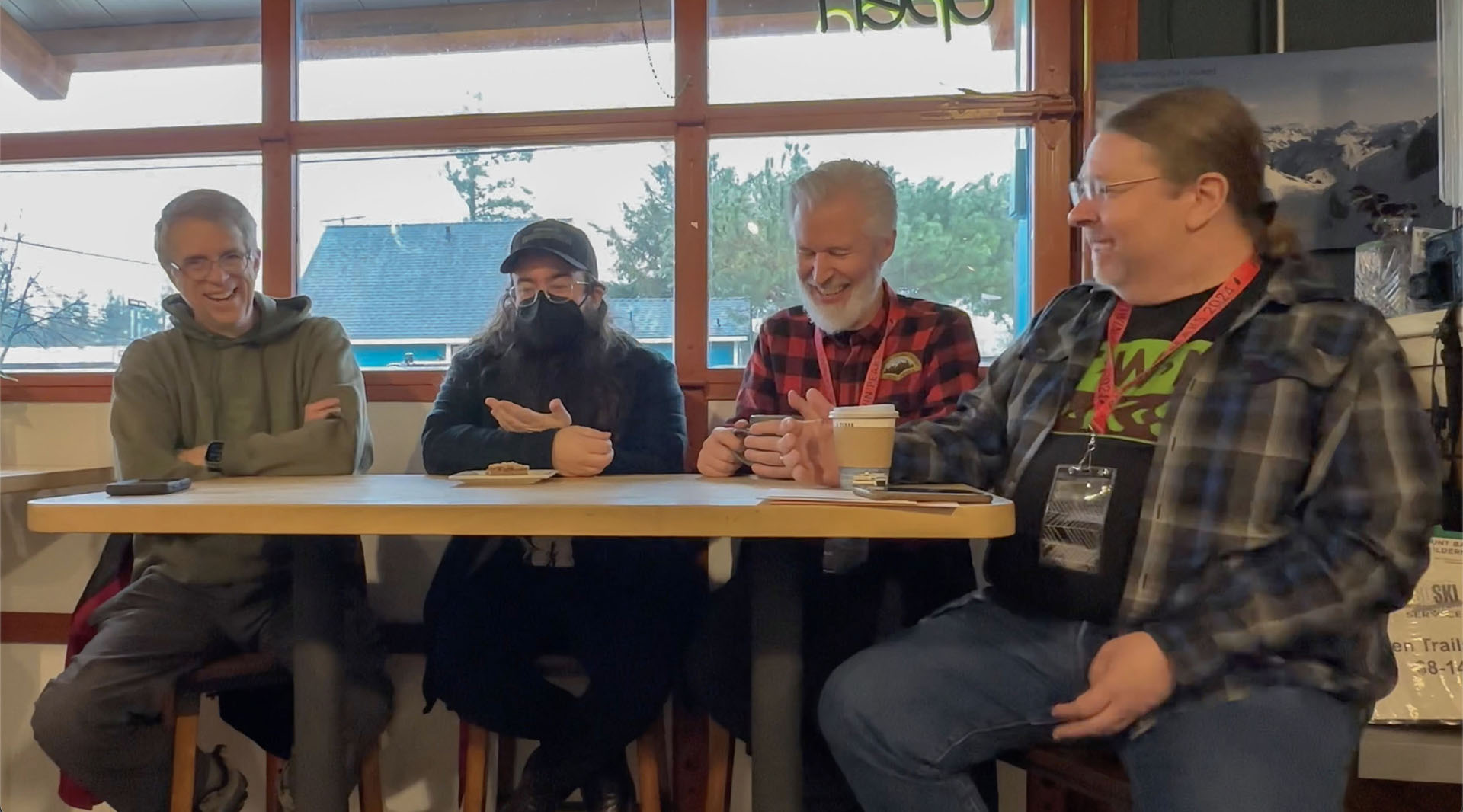Lately I’ve been discussing the film festival premieres for the Twin Peaks pilot episode. In between these festivals, the pilot was screened for the Television Critics Association during ABC Television’s winter press tour on January 6, 1990. Thanks to numerous newspaper reports, I’ve pieced together what took place that day in Universal City, California.
The Television Critics Association (TCA) is a group of approximately 200 United States and Canadian television critics, journalists and columnists who cover television programming for newspapers, magazines and web publications. Twice a year, members meet for multi-day conferences where television executives, show runners and cast showcase new and upcoming productions. The winter press tour typically covers mid-season replacements, which describes Twin Peaks in early 1990.
Since 1984, the members of the TCA have voted for outstanding achievements in television. The awards are typically presented in July at the end of the summer press tour. It’s no surprise the Twin Peaks received two awards for the 1989-90 season – Outstanding Achievement in Drama and Program of the Year.
The winter 1990 press tour was held over several days in January 1990 at the former Registry Hotel (now Hilton Universal) in Universal City, California. The ABC Television day on Saturday, January 6 that year.
THE REGISTRY HOTEL

Known today at the Hilton Los Angeles / Universal City, the previously named Registry Hotel is located at 555 Universal Hollywood Drive in Universal City, California. The hotel is adjacent to Universal Studios Hollywood and offers a free shuttle to the theme park. Looking on to the Hollywood Hills, the hotel is a half-mile from Universal CityWalk shopping and just as close to the local Metro station.
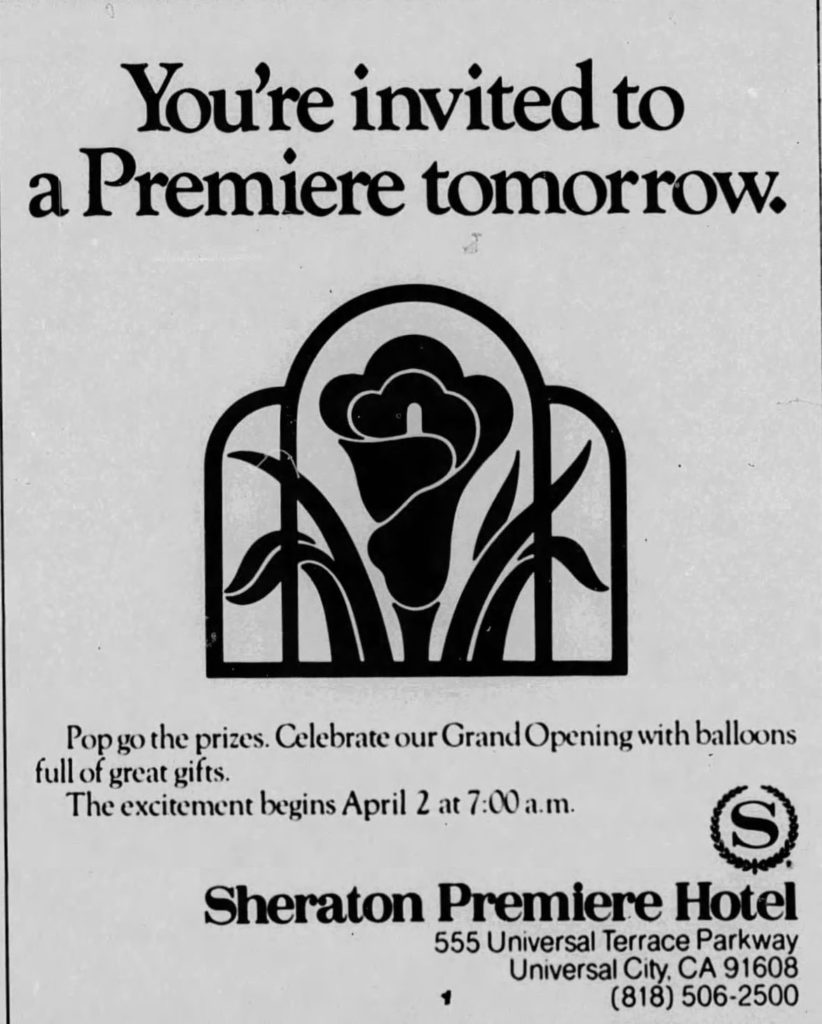
The hotel was constructed as the Sheraton Premiere Hotel in 1983-84 for $74 million. It was designed by William L. Pereira Associates of Los Angeles. The list of buildings designed by Pereira and his team is endless and includes places like the University of California – Irvine Campus, Jet Propulsion Laboratory and even the former CommuniCore buildings in EPCOT Center at Walt Disney World Resort in Florida. The hotel’s grand opening was held on April 2, 1984.
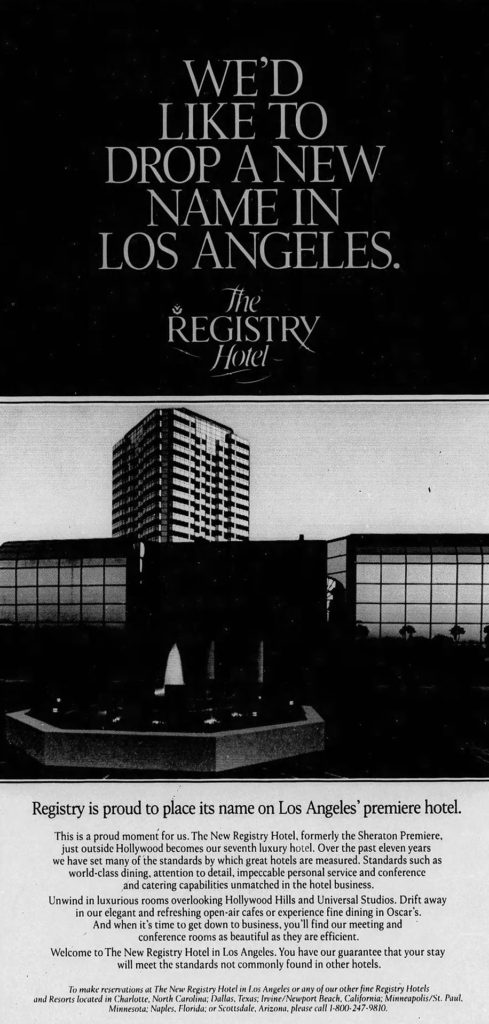
By July 1986, MCA and Sheraton was in negotiation to sell the two-year old Sheraton Premiere Hotel to Cigna, a Philadelphia-based insurance company with extensive real estate holdings. In the April 29, 1987 edition of The Los Angeles Times, an advertisement ran announcing the location was rebranded as The Registry Hotel. It was the seventh location for this hotel chain that had resorts stretching from California to Texas to North Carolina.

The hotel was sold again in 1990, this time to Taiwan-based Tuntex Group and rebranded as a Hilton Hotel. At the time, they also owned the Regent Hotel in Taipei.
JANUARY 6, 1990
Thankfully we have a detailed play-by-play recap from the ABC Television day held on Saturday thanks to The Miami Herald’s Hal Boedeker. You might recall that Hal would give a glowing review of Twin Peaks following the screening at the Miami Film Festival held about a month later. With his report, we know exactly when the pilot episode was screened and when the press conference took place.
8:05-9:45 a.m. – PILOT SCREENING
The network shared the broadcast version of the pilot via closed circuit television in each of the hotel room. It was the third show screened that morning following the short-lived The Marshall Chronicles (airing only seven episodes between April 4 to July 22, 1990) and a five-minute preview of America’s Funniest Home Videos.
Boedeker said that virtually none of the shows being screened that day had premiere dates. What a treat to enjoy the screening from the comfort of a hotel room.
Regarding Twin Peaks, Hal wrote: “The people at ABC show their courage. Or is it their kinkiness? They present the first part of Twin Peaks, a weird and totally engrossing murder mystery/soap opera set in the Pacific Northwest. Blue Velvet director David Lynch, whose perverse style makes him an unusual entrant to the TV scene, serves as executive producer. “
OTHER REACTIONS
There were other reactions to Twin Peaks before and after the January 6 screening. As reminder, the pilot had been screen at the Telluride Film Festival and Vancouver International Film Festival a few months earlier.

Additionally, the pilot had been released on VHS in the United Kingdom (complete with the extended footage) only a few weeks earlier. So critics, like Diane Holloway from the Austin American Statesman, had heard about the show. I really need to get my hands on the original ABC press kit she references. Of course, we know that Patricia Norris and later Sara Markowitz would serve as the Costuming team for the show.
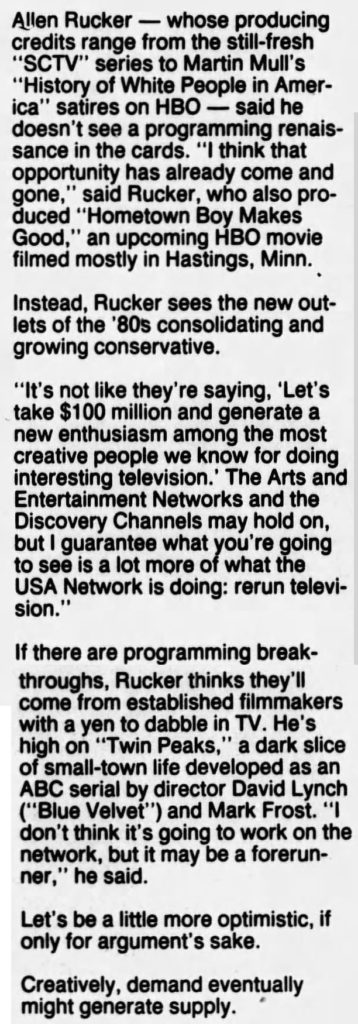
Producer Allen Rucker was quoted about Twin Peaks in the Star Tribune a day after the press screening. He was “high” on the series and accurately predicted the future of the series with season 3 premiering on Showtime about 27 years later.
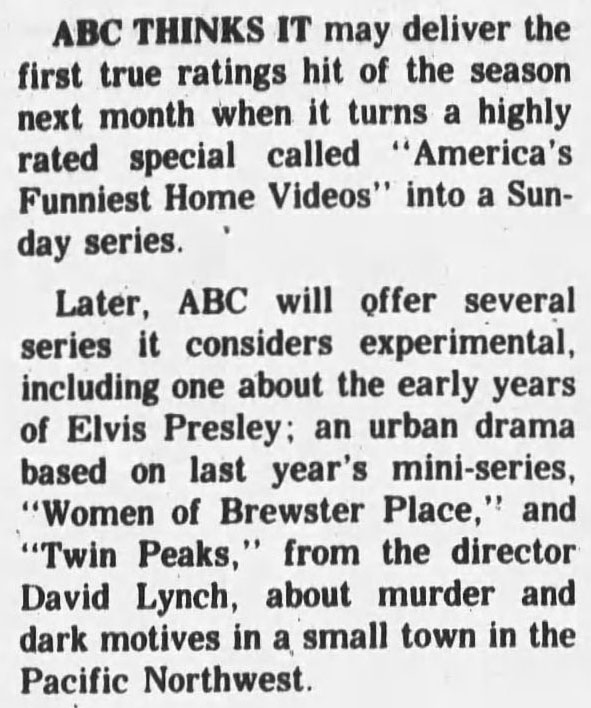
The New York Times News Service ran a syndicated review stating Twin Peaks was one of several “experimental” shows from ABC. The description of the show is rather spot on too: “…’Twin Peaks,’ from the director David Lynch,, about murder and dark motives in a small town in the Pacific Northwest.”

The Charlotte Observer had a short mention about Twin Peaks which said the show was loosely based on Blue Velvet and “examines the ‘underbelly of life” in a peaceful Northwestern town.” Sort of.
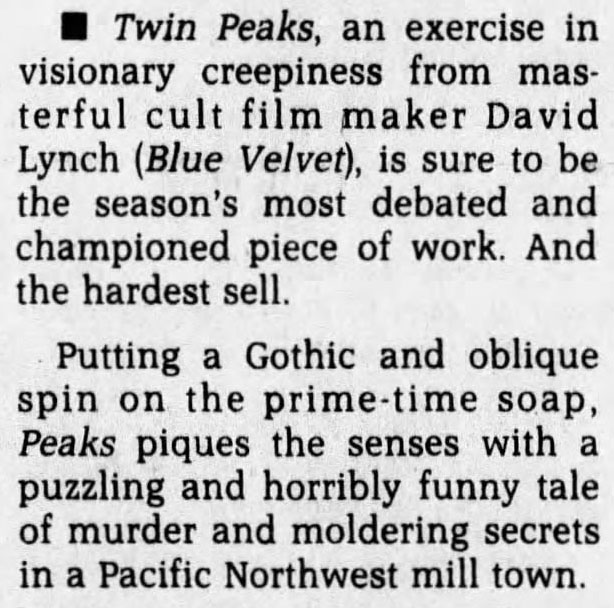
Matt Roush from the Star Gazette said Twin Peaks was sure to be “the season’s most debated and championed piece of work.” He also felt it was “the hardest sell.” He continued, “… Peaks piques the senses with a puzzling and horribly funny tale of murder and moldering secrets in a Pacific Northwest mill town.”
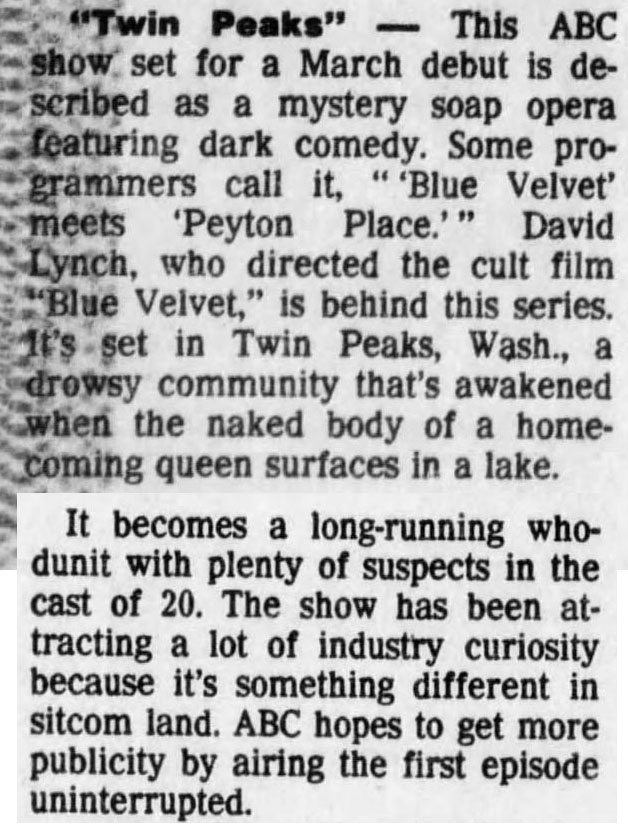
Weeks after the event, The Courier Journal ran a review on January 29, 1990 which said Twin Peaks would debut in March and that it would be shown without commercials. While that is another article for another time, long story short, ABC did consider airing the pilot sans commercials.
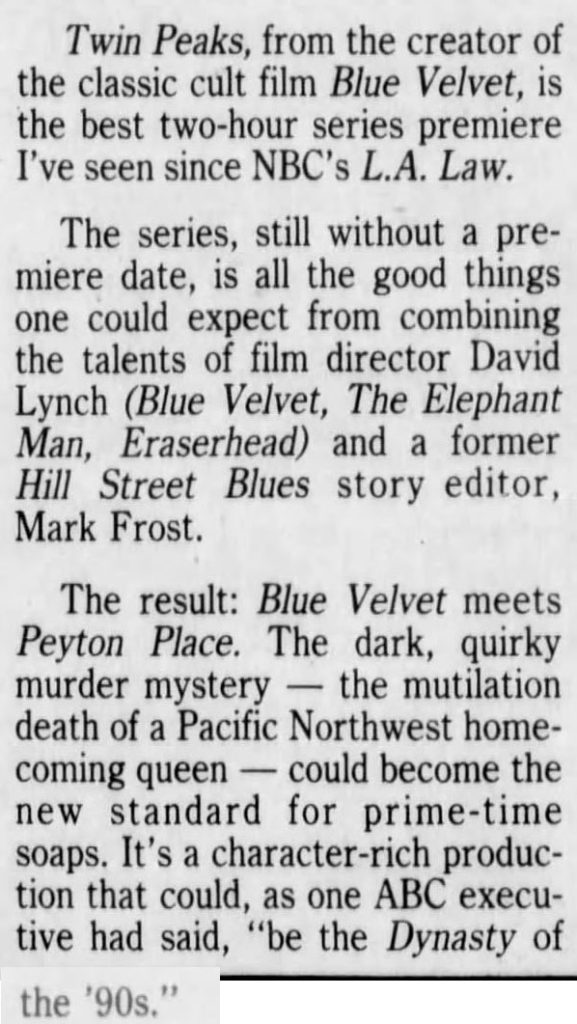
Critic John Kiesewetter from The Cincinnati Enquirer thought the pilot was the best premiere he had seen since NBC’s L.A. Law which debuted in September 1986. He felt the show could become the “new standard for prime-time soaps.” He also mentioned on ABC executive said Twin Peaks could “be the Dynasty of the ’90s.” I’m assuming that comment was made during the press conference.
3:15 p.m. – THE PRESS CONFERENCE
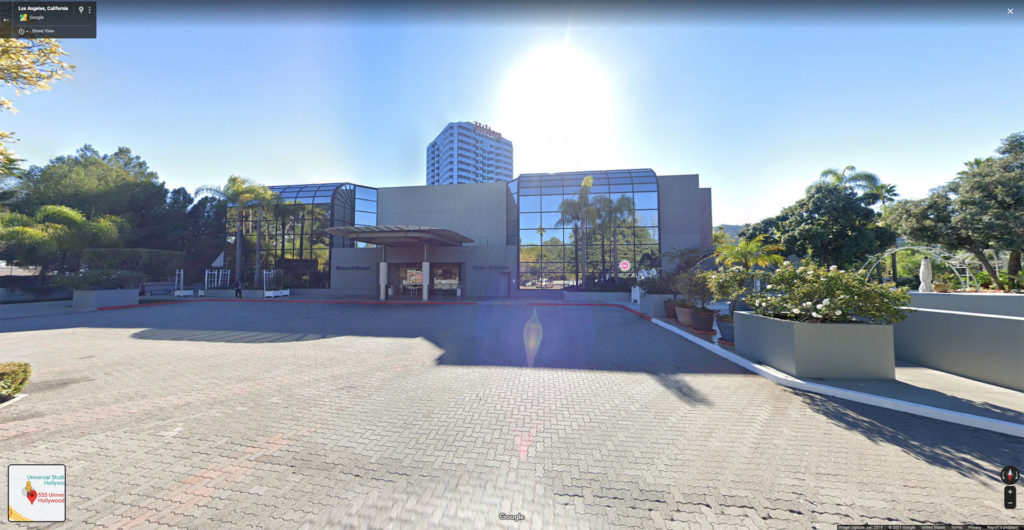
The press conference portion of the day began around 10:00 a.m. in the Convention Center. The Twin Peaks -specific conference was at 3:15 p.m. that afternoon.
Boedeker wrote: “3:15 p.m. -The cast of Twin Peaks meets the press. It’s a big talent pool: Peggy Lipton, Richard Beymer (West Side Story), Michael Ontkean (The Rookies), Piper Laurie (Carrie) and Kyle MacLachlan (Dune, Blue Velvet). Executive producer Mark Frost explains the casting process. ‘We did consciously stay away from people who had starred in a big series in a big identifiable role in the very recent past.'”
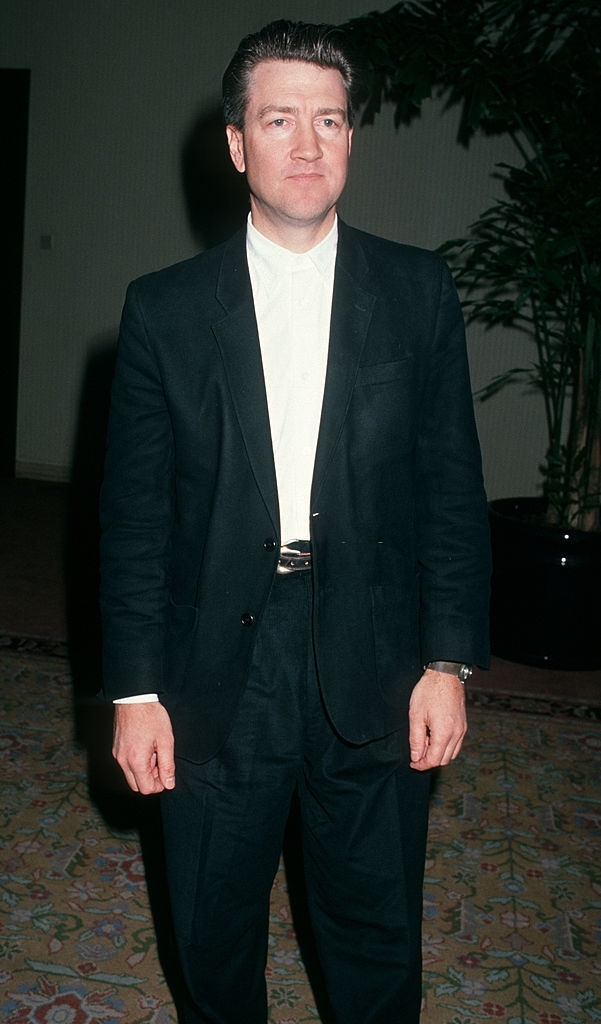
Thankfully I found images from this press conference that also included director David Lynch and Mark Frost (though I couldn’t locate an image of him).
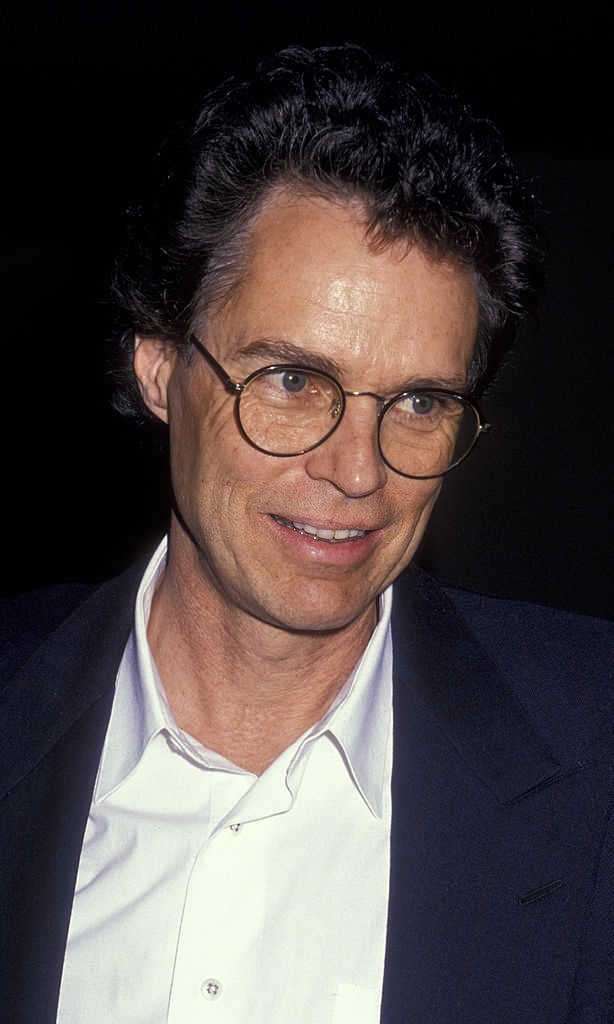
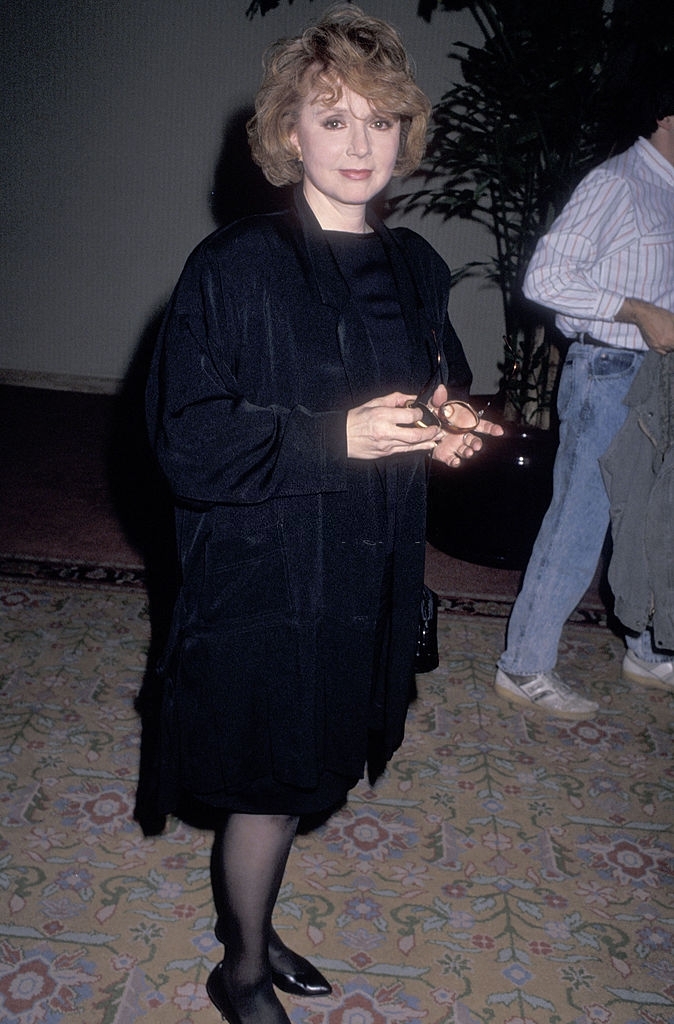
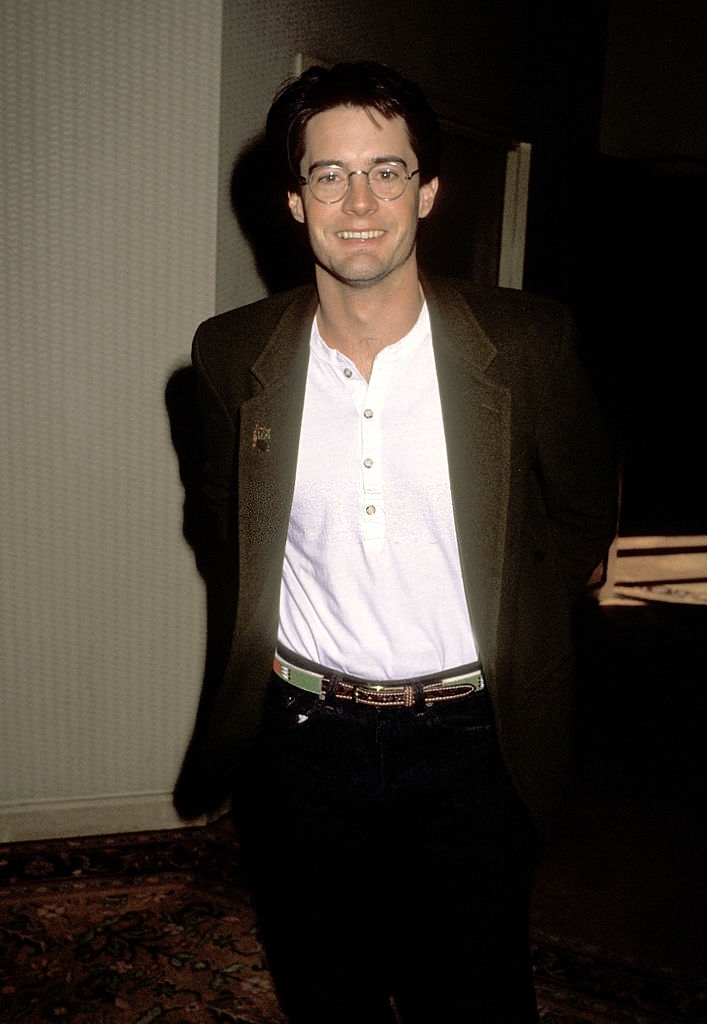
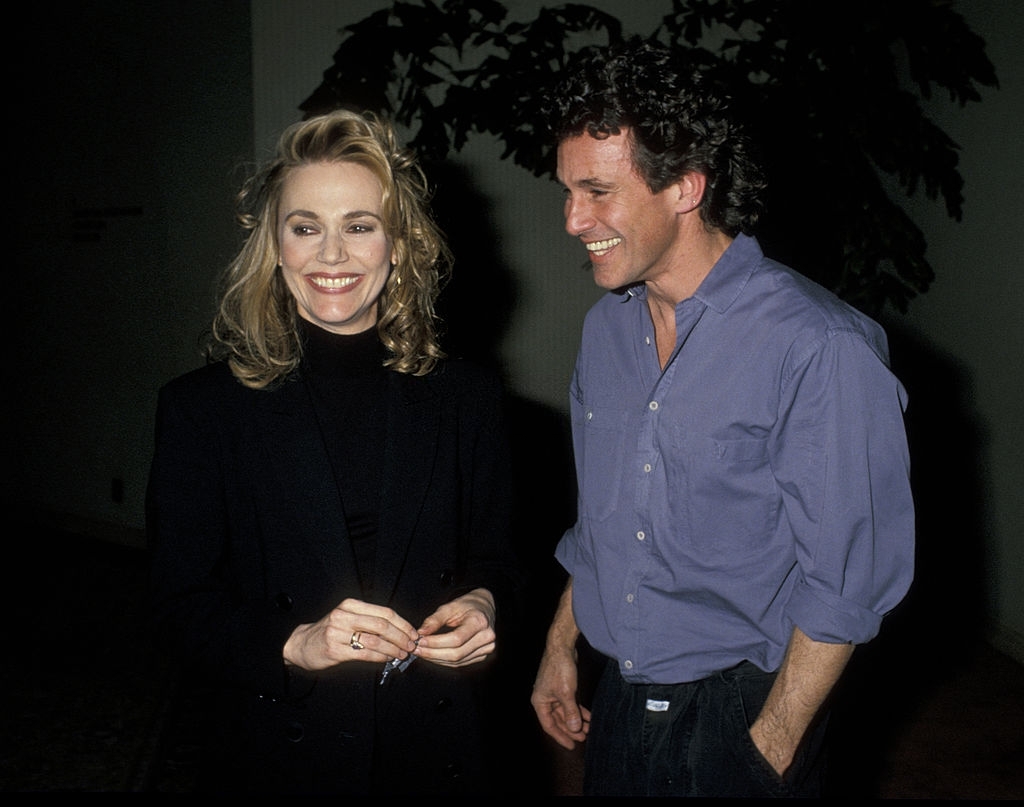
BOB IGER
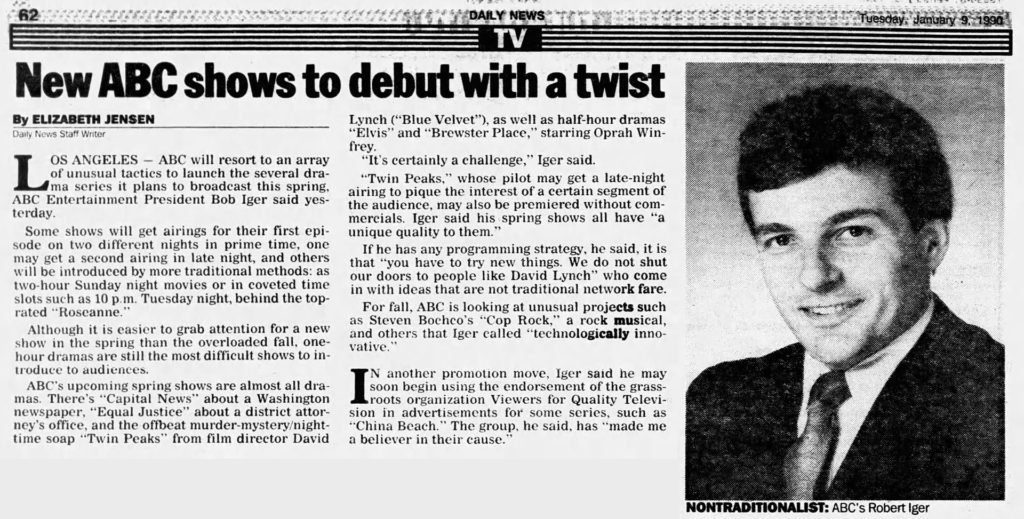
Also in attendance for the press conference was then ABC Entertainment President Bob Iger. Always the visionary, Iger was a champion for Twin Peaks, and was willing to take a risk on Lynch and Frost’s quirky nighttime drama. Even the Daily News captioned his photo with the “nontraditionalist.”
At the time, ABC was losing the battle of the networks with powerhouse NBC continuing to take the number one spot. They were also struggling to stay even in the ratings with CBS. On March 21, 1989, Brandon Stoddard, who had served as president of ABC Entertainment since November 12, 1985, suddenly resigned. He assumed duties for a new in-house company that would supply ABC with new programming. Three days later, 38-year old Bob Iger was named president. While he didn’t have much experience programming, he felt that would give him independence in his position.
“If there is one thing I bring to this job, in terms of my point of view, it’s that I’m my own person. And if people are wise, they’ll wait to judge me when they see me,” said Iger. (Los Angeles Times, March 24, 1989).
At the January press conference, Iger said his spring shows all have “a unique quality to them.” If he has any programming strategy, he said, it is that “you have to try new things. We do not shut our doors to people like David Lynch” who come in with ideas that are not traditional network fare. ”
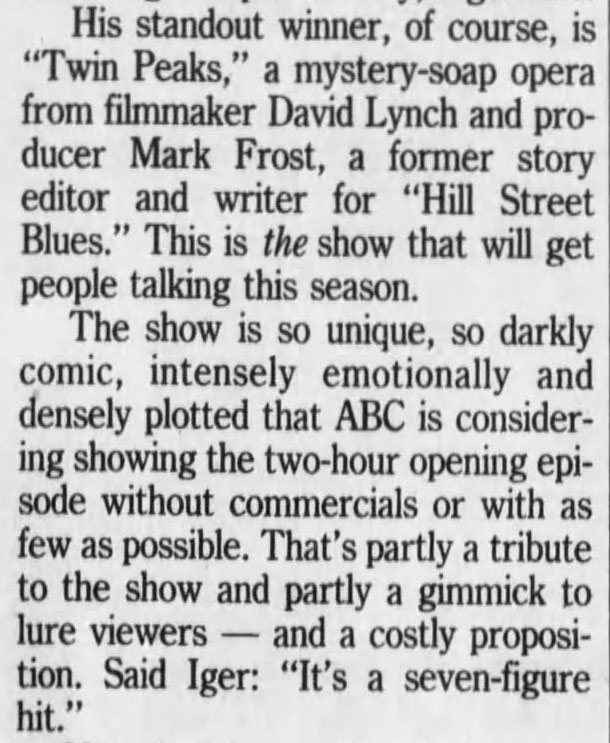
Marc Gunther from the Detroit Free Press said Twin Peaks “is the show that will get people talking this season.” He also mentioned that Iger was toying with idea of showing the pilot without commercials as he believed the show was “a seven-figure hit.” Bob was bullish about the show, and I wonder if he realized just how big the show would be just a few months later.
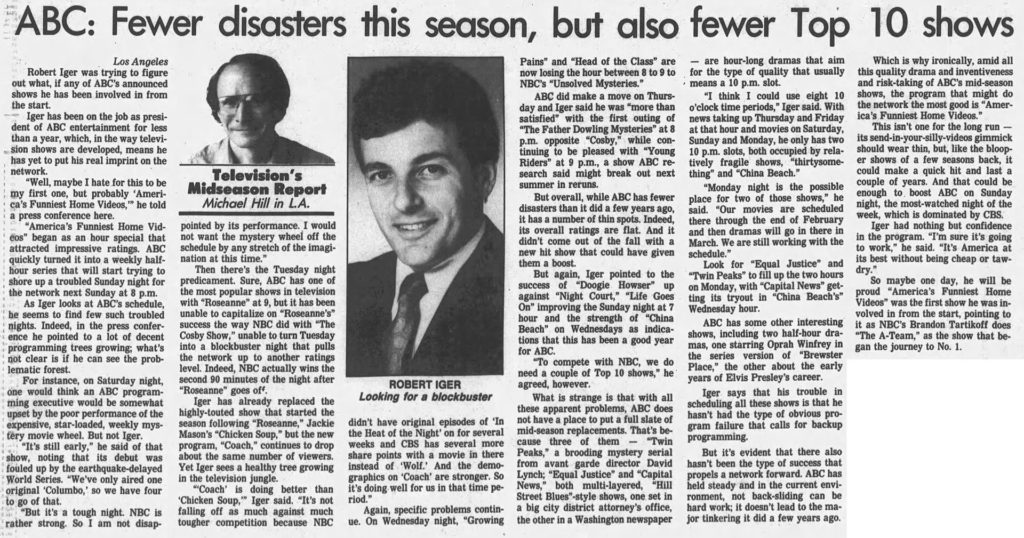
One of the more interesting aspects from the press conference was Bob Iger explaining the programming schedule for some of the mid-season replacements. All three dramas, which included Twin Peaks, Equal Justice and Capitol News (the latter two being more like Hill Street Blues-style shows set in a big city district attorney’s office and Washington, D.C.), seemed like shows that would do best in the 10:00 p.m. slot.
“I think I could use eight 10 o’clock time periods,” remarked Iger. “Monday night is the possible place for two of these shows.”
This meant Twin Peaks could have aired on Monday nights, not Thursdays as would happen starting in April. ABC was still planning to have Twin Peaks debut in March once all the schedule movies had concluded at the end of February. I need to dig into why that schedule shifted to April, so stay tuned for that story.
TV CENSORS & COMMERCIALS
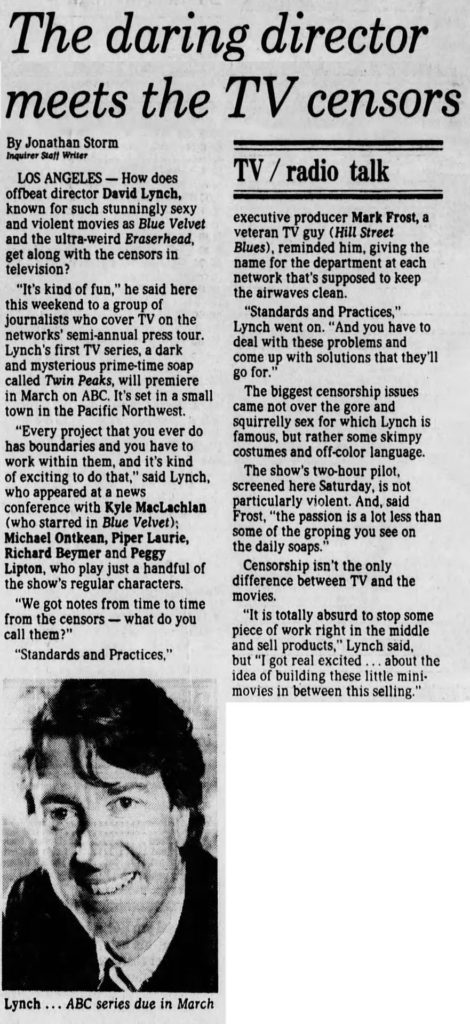
Jonathan Storm from The Philadelphia Inquirer offered some insight about Lynch and Frost’s interactions with the television censors known as “Standards and Practices.”
“It’s kind of fun … Every project that you ever do has boundaries and you have to work within them, and it’s kind of exciting to do that,” said Lynch. “We got notes from time to time from the censors – what do you call them?”
“Standards and Practices,” executive producer Mark Frost, a veteran TV guy (Hill Street Blues), reminded him, giving the name for the department at each network that’s supposed to keep the airwaves clean.
“Standards and Practices,” Lynch went on. “And you have to deal with these problems and come up with solutions that they’ll go for. And that’s kind of fun to do as well. Some interesting things have come out of that.”
According to Lynch, the biggest censorship issues came over some skimpy costumes and off-color language. Frost said the passion in Twin Peaks “is a lot less than some of the groping you see on the daily soaps.”
Lynch also discussed the only difference between TV and the movies – commercials.
“It is totally absurd to stop some piece of work right in the middle and sell products,” Lynch said, but “I got real excited … about the idea of building these little mini-movies in between this selling. And it got to be kind of a thrilling idea. And it wasn’t any problem, the fade-ins and fade-outs all seem to work.”
PEGGY LIPTON
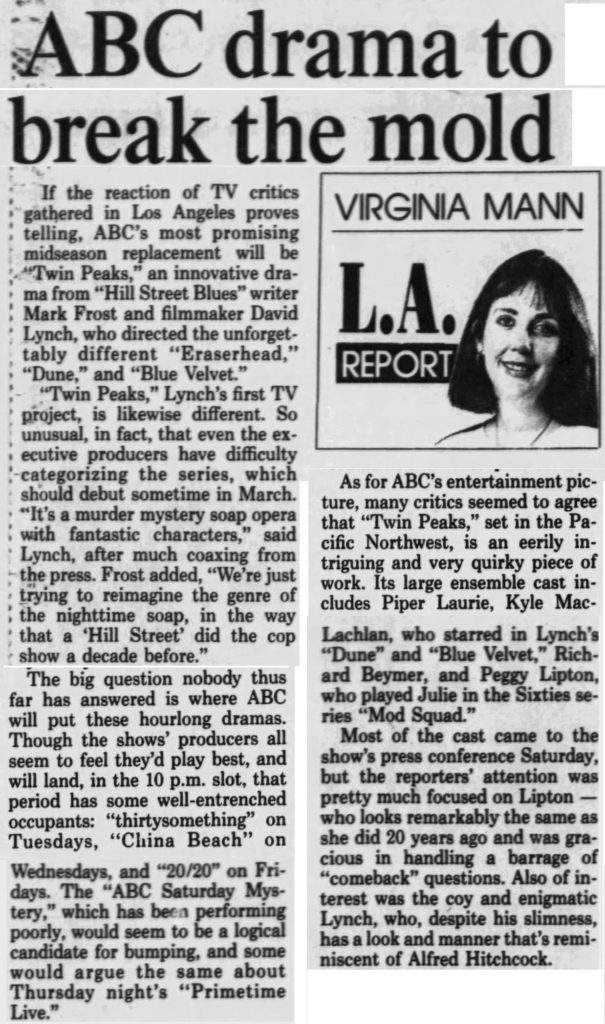
In Virginia Mann’s “L.A. Report” published on January 9, she shared more details from the press conference. Lynch was reluctant to categorize the series, but finally said, “It’s a murder mystery soap opera with fantastic characters.”
Mark Frost continued, “We’re just trying to reimagine the genre of the nighttime soap, in the way that a ‘Hill Street [Blues]’ did the cop show a decade before.”
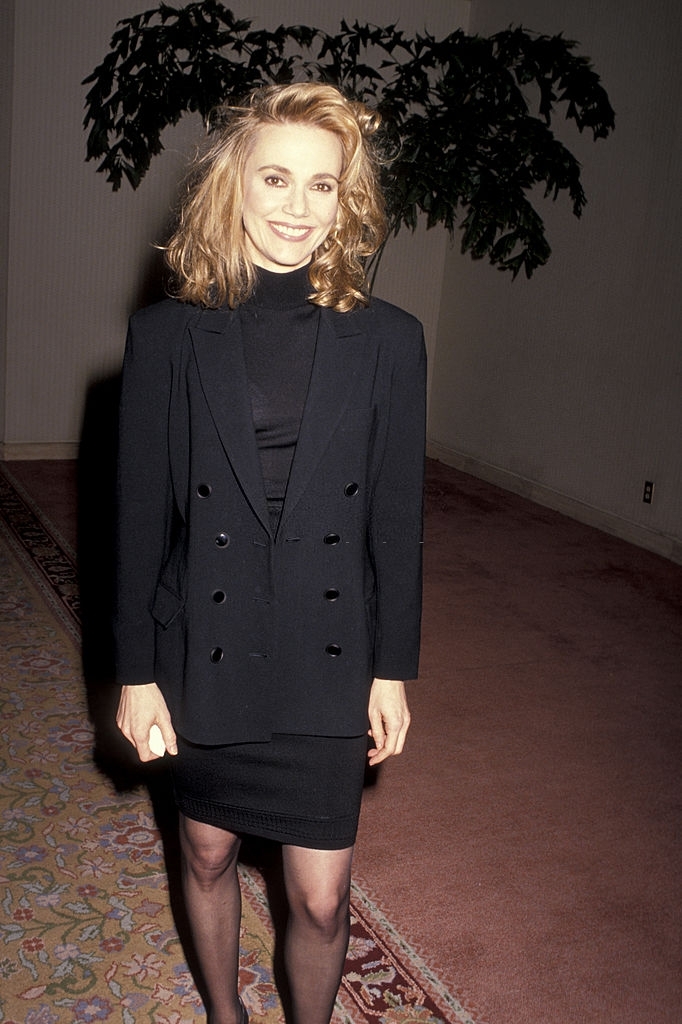
Mann also reported on the press being fascinated by Peggy Lipton.
“Most of the cast came to the show’s press conference Saturday, but the reporters’ attention was pretty much focused on Lipton – who looks remarkably the same as she did 20 years ago and was gracious in handling a barrage of ‘comeback’ questions.”
Coy and enigmatic, David Lynch also intrigued reporters during the conference. Mann said he had a look and manners reminiscent of a slimmer Alfred Hitchcock.
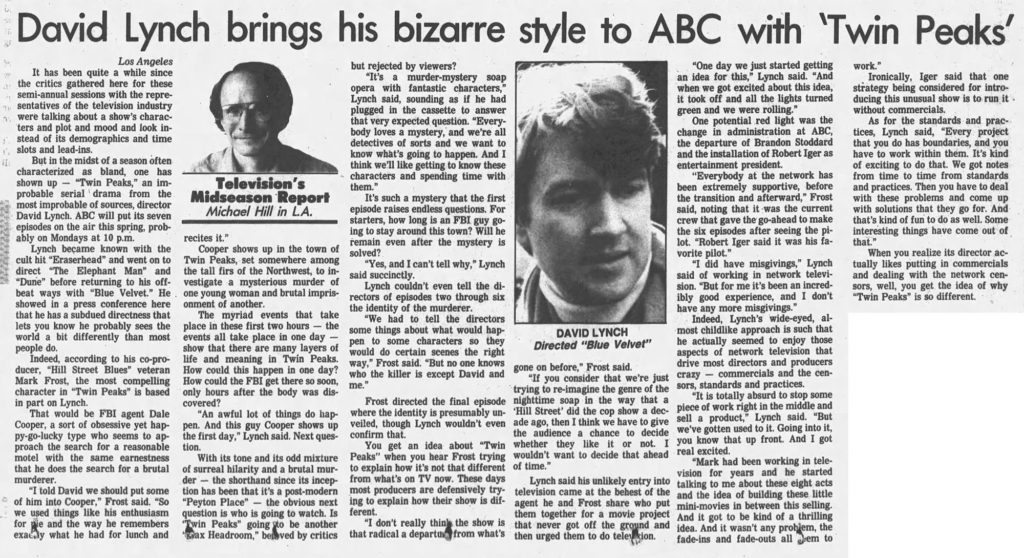
Michael Hill’s mid-season television report from January 11 offered some additional nuggets.
According to Frost, the most compelling character in Twin Peaks, Special Agent Dale Cooper, is based in part on Lynch.
“I told David we should put some of him into Cooper,” Frost said. “So we used things like his enthusiasm for pie and the way he remembers exactly what he had for lunch and recites it.”
Lynch was asked how so many things could happen in one day during the pilot. How could the FBI get to the town only hours after the body was discovered?
“An awful lot of things do happen. And this guy Cooper shows up the first day,” Lynch said.
Who is going to watch the series?
“Everybody loves a mystery, and we’re all detectives of sorts and we want to know what’s going to happen. And I think we’ll like getting to know these characters and spending time with time,” continued Lynch.
How long is an FBI guy going to stay around this town? Will he remain even after the mystery is solved?
“Yes, and I can’t tell why,” Lynch said succinctly.
Lynch and Frost did not reveal the identity of the murderer to the directors of episodes two through six.
“We had to tell the directors some things about what would happen to some characters so they would do certain scenes the right way,” Frost said. “But no one knows who the killer is except David and me.”
There was an assumption that Mark Frost’s first season finale would reveal the killer but “Lynch wouldn’t even confirm that.”
Frost would later explain how Twin Peaks was not far different from current television programming.
“I don’t really think the show is that radical a departure from what’s gone on before. If you consider that we’re just trying to re-imagine the genre of the nighttime soap in the way that a ‘Hill Street [Blues]’ did the cop show a decade ago, then I think we have to give the audience a chance to decide whether they like it or not. I wouldn’t want to decide that ahead of time.”
Lynch described how he got into working with Mark Frost on a television show.
“One day we just started getting an idea for this. And when we got excited about this idea it took off and all the lights turned green and we were rolling,” said Lynch. It was Tony Krantz, the shared agent for Lynch and Frost that ultimately encouraged the two to work together on an unproduced film.
Mark discussed working with ABC, including the recently appointed Iger.
“Everybody at the network has been extremely supportive before [Brandon Stoddard’s departure] and [after the appointing of Bob Iger] … Robert Iger said it was his favorite pilot.”
“I did have misgivings,” Lynch said of working in network television. “But for me it’s been an incredibly goo experience, and I don’t have any more misgivings.”
NOD TO RAY WISE

One final note comes from Mark Dawidziak from the Akron Beacon Journal. In his review of the press tour, he gave a nod to Akron-native Ray Wise.
“Cast in the key role of a murdered girl’s father is Akron native Ray Wise, whose interest in active was fueled by appearances in plays at Weathervane Playhouse and Kent State University.”
He concludes with one more nugget from Mark Frost.
“I think [Twin Peaks] is intelligently made and watchable, and I guess that kind of would distinguish it from what’s on other networks.”

